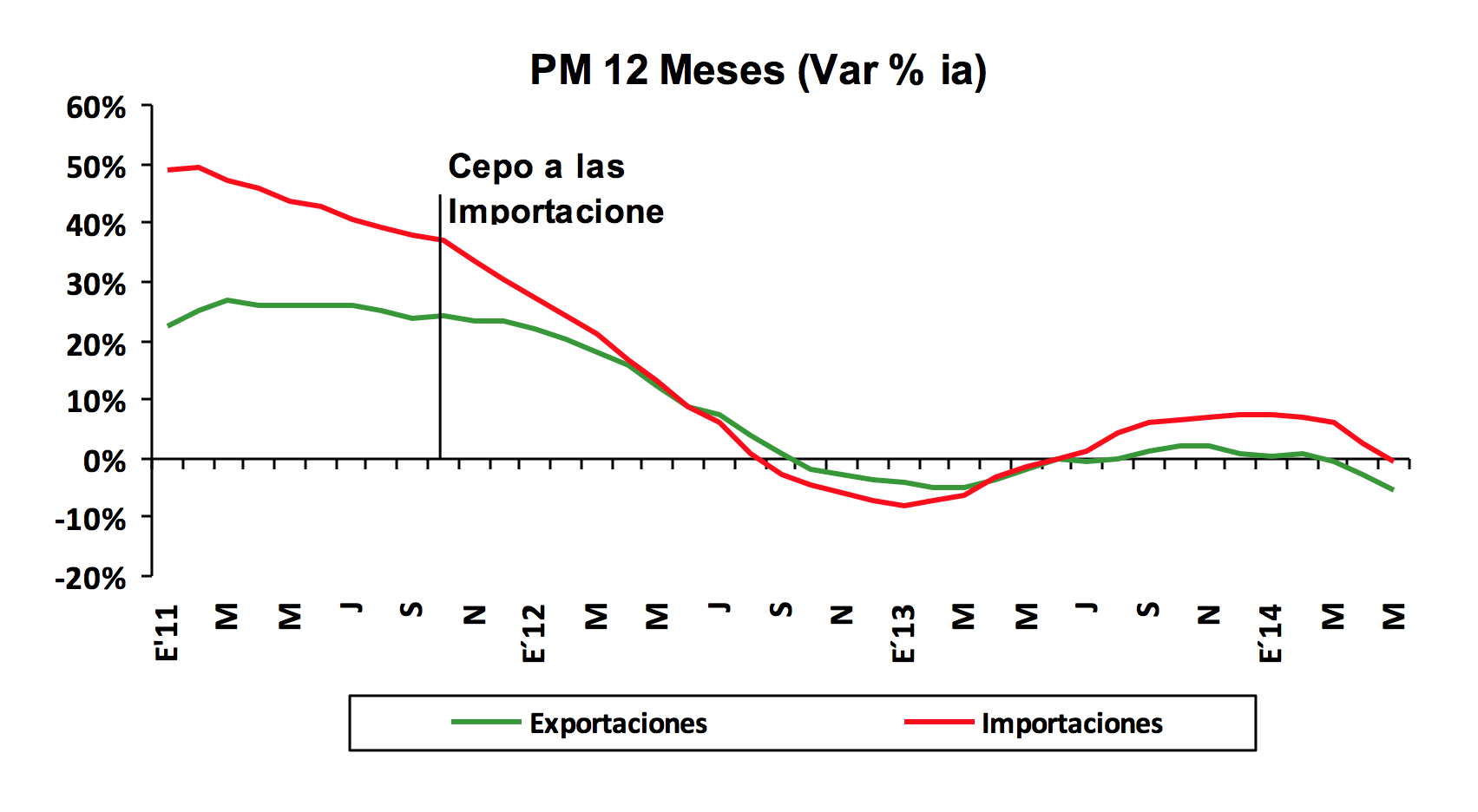EspañolThe latest report from the Argentinean Commercial Exchange, which releases the nation’s trade balance data, continues what has persisted for months: both imports and exports are dismal and what was promising growth has been trending downwards. In the year leading up to May 2014, exports collapsed by 16 percent, while imports did even worse, down by 17 percent.
So far in 2014, exports and imports have declined by 11.8 percent and 7.9 percent, respectively. The natural question is, why the severe slowdown? What is getting in the way of trade between Argentina and the rest of the world?
The root of the problem is the series of restrictions on imports imposed in late 2011. As the balance of trade was trending downwards, those in President Cristina Kirchner’s administration started to worry. A misguided attempt to recover the trade surplus led them to lock down imports.
This approach is theoretically impossible. One must understand that exports and imports are related, since to export one must also import — something must be traded. That is why in the long run the two variables tend to equalize: supply creates demand.
In every commercial exchange, one person provides a good or service for something in return. If person A gives good X to person B, and the latter in return gives A good Y, then we can clearly see that A exports X but imports Y. In terms of value in our scenario, the exports and imports are identical. Locking down imports, by definition, would lock down the exports as well.
When money is introduced into the analysis, it only acts as a means of exchange and doesn’t affect the core of the problem. The difference is that you can borrow money and generate imbalances. However, this does not take away the fact that exports and imports are two sides of the same coin and will eventually move in the same direction. The graph below clearly makes this point in the case of Argentina. The annual change in 12 months of the moving average is considered, in order to remove seasonality.

One can observe that once barriers to imports were introduced, both imports and exports began to decline. As a result, the only thing achieved was a reduced number of transactions made between individuals from different countries. This is not good, because free trade — whether within or across borders — benefits those involved. Unfortunately, the measure taken by Kirchner has not only reduced the amount of international transactions, it has jeopardized local production.
Fewer Imports, Higher Prices
When trying to make imports expensive to reduce them, the president forgets that Argentina, in order to produce locally, needs products from other countries. If, for example, an owner of a small enterprise needs to import some materials from another country to use in his own production process, the lockdown on imports will impede his local production. This translates into an attack on the domestic industry, which directly contradicts the official political discourse often heard from government officers.
Now, for several months Argentina has not met the global standards of international trade, as it has hidden behind protectionism. It is no coincidence that the World Trade Organization (WTO) sees Argentina as a violator of trade rules, given open opposition to imports.
According to the WTO, “since 2008, Argentina has expanded the list of goods subject to non-automatic import licenses, delaying the entry of laptops, appliances, machinery, and equipment, automobiles and auto parts, chemicals, textiles and clothing, among other products. And [traders] complain that the country does not respect the procedure to grant the license within 60 days. Others do not get the green light to sell their products, and without explanation. ”
In Argentina, the government defends itself by saying that it does not violate international trade rules and carries forward these barriers to promote the belief that this measures will favor the balance of trade. However, as noted in the chart, both exports and imports fell.
Nations experience growth by expanding international trade, not hindering it. At this point, the theory of import substitution, which promotes trade isolationism and infant industries, should be obsolete. Over the last 200 years, trade has improved the health of nations and people enormously, destroying the myth that the economy is a zero-sum game.
 Versión Español
Versión Español












